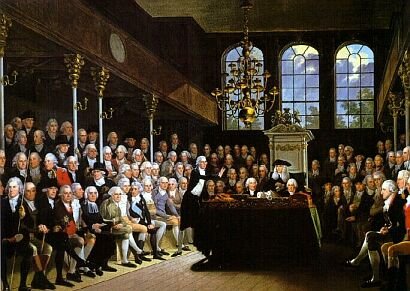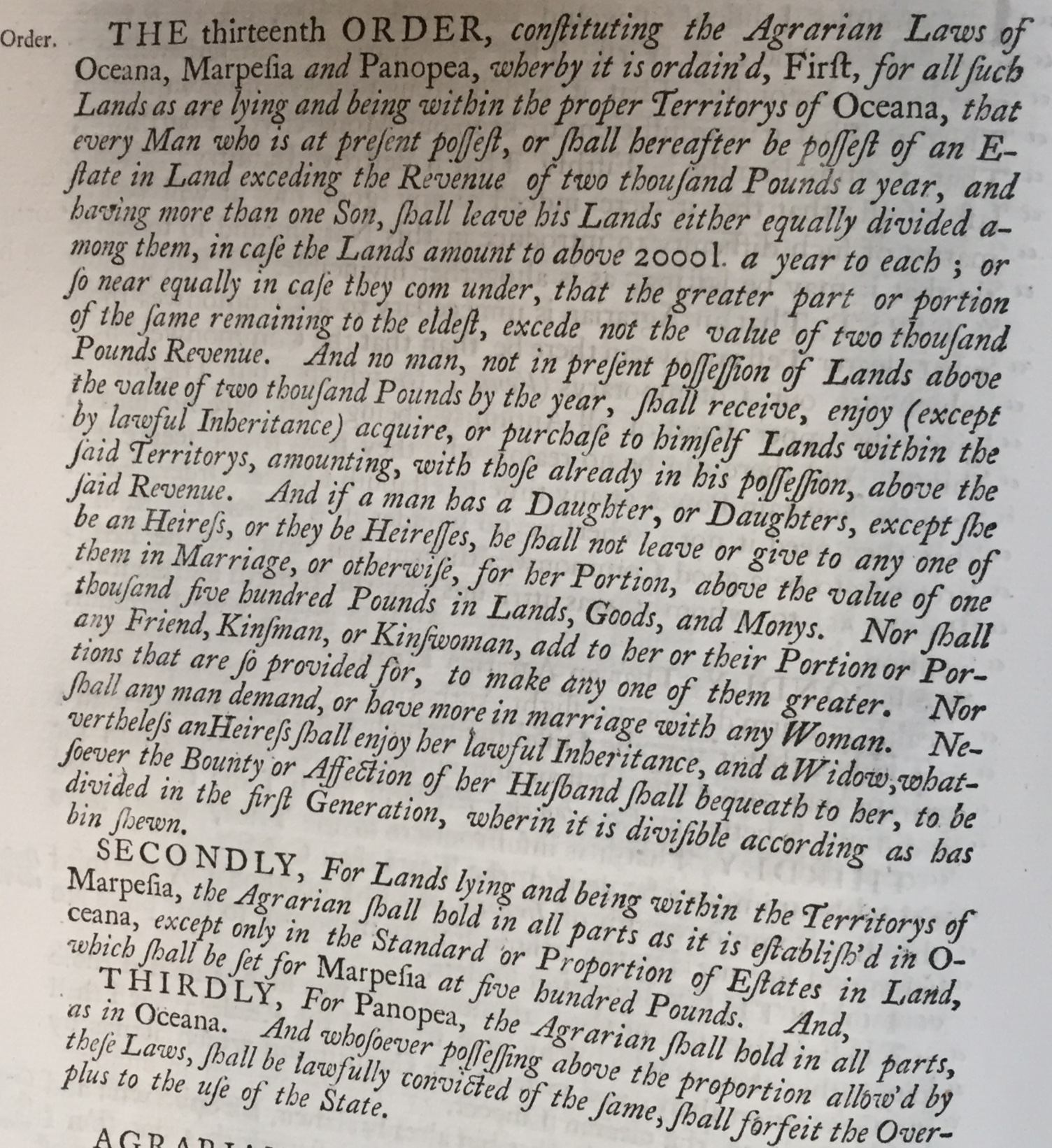The present House of Commons in session. Image from Wikimedia Commons.
During the last month there has been much talk in the UK news about sleaze or political corruption. On 3 November MPs voted by a narrow majority to reform the rules on parliamentary lobbying. This was widely seen as a means of saving Owen Paterson, the Tory MP for North Shropshire, from a 30-day suspension from Parliament after he had been accused of using his position as an MP to benefit two companies for which he worked. It was only the furore this provoked among the press and the public that led Boris Johnson to execute a U-turn, announcing a fresh debate on Paterson's suspension and a willingness to gain cross-party support for the reform of the disciplinary procedure for MPs. While Paterson has subsequently resigned as an MP, this case brought to the surface questionable behaviour by other members of the House of Commons. On 10 November Sir Geoffrey Cox came under scrutiny for the legal work that he carries out alongside his parliamentary responsibilities - including for the British Virgin Islands. Not only had Cox made an agreement to vote by proxy while carrying out work in the Caribbean, but it was also alleged that he had held meetings relating to his legal role from his office in Parliament. The former was within the rules, the latter was not. In response the health secretary Sajid Javid defended the right of MPs to have second jobs, but also made clear that they should not be using Commons' facilities for extra-parliamentary work and insisted that they ought to be devoting the vast majority of their time to their constituents.
Of course parliamentary corruption is nothing new. In the eighteenth century there was concern, particularly among those who called themselves commonwealthmen, about the dangers posed by corrupt MPs, those whose commitment to the public good was called into question because they were subject to other influences. Then, however, the main source of this corruption was not second jobs (most MPs were 'gentlemen' who did not 'work') but rather the monarch and his or her ministers who sought to influence the decisions of the House by putting their own creatures (known as placemen) into the Commons or by offering pensions to those who held office. Yet, despite the difference in the source of the corruption, its significance remains the same.
Portrait of John Toland. Taken from Wikimedia Commons.
In the context of the 1698 election campaign, the commonwealthman John Toland produced a short pamphlet entitled The Danger of Mercenary Parliaments. There he argued that a House of Commons filled with officers and court pensioners was a threat to English liberties, pointing out that such a House could not fulfil its role within the constitution. Is it possible, he asked, that 'our Grievances can be redrest, that are committed by Persons from whom there is no higher Power to appeal?' Can there be 'any hope of Justice where the Malefactors are the Judges?' Will the public accounts be 'faithfully inspected by those who embezzle our mony to their own use?' (John Toland, The Danger of Mercenary Parliaments. London, 1698, p. 2). The answers, Toland insisted, were obvious. Indeed he went so far as to suggest that 'all the Calamities and Distractions under which the whole Nation at present groans' were due to 'that bare-fac'd and openly avow'd Corruption, which, like a universal Leprosy, has so notoriously infected and overspread both our Court and Parliament.' (Toland, Danger of Mercenary Parliaments, p. 3).
The only solution, Toland insisted, was to choose MPs who would act according to 'no other motives but the real and true Interest of his Majesty and his Dominions; a Parliament that will fall unanimously upon publick Business, and be free from those petty Factions and personal Piques which in the late Session so shamefully obstructed and delay'd the most importance Service of the Commonwealth.' This required all MPs to be 'subject to the Laws, and to some Power on Earth that may call them to account for their misbehaviours, that they may not be their own judges' (Toland, Danger of Mercenary Parliaments, p. 6). It was, therefore, up to the electors in the forthcoming election to disappoint the 'unreasonable and exorbitant hopes' of those corrupt MPs 'and to spew them out as detestable Members of the Commonwealth; not only as unfit to be trusted with their Liberties, but as unworthy to breath in the air of a Free Government' (Toland, Danger of Mercenary Parliaments, p. 7). Toland was clear that the fact that elections were now held every three years helped in this regard, providing electors with frequent opportunities to hold their MPs to account. Today, of course, general elections are less frequent, meaning that the point made in defence of Geoffrey Cox - that his constituents could vote him out if they were unhappy with his behaviour - does not feel like an adequate solution.
However, Toland's optimism that the problem would be resolved at the forthcoming election was misplaced. More than forty years later, in the context of yet another election campaign, the Scottish writer John Campbell again expressed concern that individual MPs were being diverted by bribes, posts, and pensions and were attached to private interests rather than to the public good. Without banishing corruption, he insisted, 'the Nation never can be out of Trouble, never free from Danger' (John Campbell, Liberty and Right. London, 1747, p. 45).
Campbell recognised that simply relying on electors to make sensible choices was not enough. He therefore proposed two further remedies. First, he called for MPs to be paid a salary (so that they would not be vulnerable to offers of money from elsewhere). Clearly this is no solution to the problems of parliamentary corruption today, since MPs already earn a substantial salary and yet some still have second jobs - though perhaps we should be challenging their right to do so. Surely a job that brings a salary of £81,932 per year (more than 3 times the UK average) is a full-time job that requires the complete attention of the person holding it.
The House of Commons in session in the eighteenth century. Image from Wikimedia Commons
In addition, Campbell linked the corruption of Parliament to the fact that MPs could continue to sit 'one Parliament after another' taking for 'themselves the principal Honours, Places, and Posts of the Country; while Men of Equal, or more extensive Abilities, remain unimploy'd'. (Campbell, Liberty and Right, p. 60). Against this practice he insisted that corruption could only be banished and the public interest secured by frequent and periodic changes to the representative body. In a proposal that clearly owed much to James Harrington's ideas, Campbell insisted that each year one third of the MPs in the House of Commons should be removed and replaced, with those retiring required to spend at least three years out of office before being eligible for re-election.
Not for the first time I am led by current events to think that we have something to learn from the writers of the seventeenth and eighteenth centuries who recognised that in order to secure good government in the public interest it is necessary to have robust systems of accountability. Without these, many will resort to acting in their own rather than the public interest. As Toland and Campbell realised, even those in Parliament must be forced to live under the laws that they make and must not be allowed to act as judges in their own case. How disappointing that, even after three hundred years, we still do not seem to have learned this lesson.









